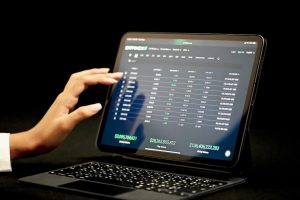The foreign exchange market, commonly known as forex or FX, is the largest financial market in the world. It is an over-the-counter (OTC) market where currencies are traded between buyers and sellers worldwide. Forex brokers act as intermediaries between traders and the market, providing access to the market’s liquidity and trading services. The question is, how do forex brokers make money?
There are different ways that forex brokers generate revenue, and in this article, we will delve into the most common ways.
Spread
The spread is the difference between the bid price and the ask price of a currency pair. The bid price is the price at which a trader can sell a currency pair, while the ask price is the price at which a trader can buy a currency pair. Forex brokers make money by charging a spread on each trade executed by their clients. The spread is usually measured in pips, which is the smallest unit of price movement in a currency pair.
For example, if the current market price of EUR/USD is 1.2000/1.2002, the spread is two pips. If a trader buys EUR/USD at 1.2002 and sells it at 1.2000, the broker earns two pips, which is the difference between the bid and ask price. Brokers can widen the spread during volatile market conditions, making it more expensive for traders to execute trades.
Commission
In addition to the spread, forex brokers can also charge a commission on each trade executed by their clients. The commission is usually a fixed amount per lot traded, and it can be charged on both the buy and sell sides of the trade. Commission-based pricing is more common in the forex market’s institutional segment, where large traders transact with the market directly.
Some retail forex brokers also offer commission-based pricing to their clients, especially those who trade large volumes. Commission-based pricing can be beneficial for traders who execute large trades, as the spread can be narrower, resulting in lower transaction costs.
Overnight Fees
Another way forex brokers make money is through overnight fees, also known as swap fees or rollover fees. When a trader holds a position overnight, the broker either pays or charges the trader a fee depending on the interest rate differential between the currencies in the pair. If the interest rate of the currency bought is higher than the interest rate of the currency sold, the trader earns a positive swap. If the interest rate of the currency bought is lower than the interest rate of the currency sold, the trader pays a negative swap.
Overnight fees can be a significant source of revenue for brokers, especially for those who offer high leverage to their clients. It is important for traders to consider overnight fees when holding positions for an extended period, as they can increase the cost of trading.
Markups
Forex brokers can also make money through markups, which is the difference between the market price and the price at which the broker executes the trade. For example, if the current market price of EUR/USD is 1.2000, the broker can execute the trade at 1.2001, resulting in a one-pip markup. Markups are more common in the retail forex market, where brokers cater to small traders who trade in small volumes.
Conclusion
Forex brokers make money by charging a spread on each trade executed by their clients, charging a commission on each trade, and earning overnight fees. Markups can also be a source of revenue for brokers, especially in the retail forex market. It is essential for traders to understand the cost of trading with a broker to make informed decisions and manage their trading costs.





